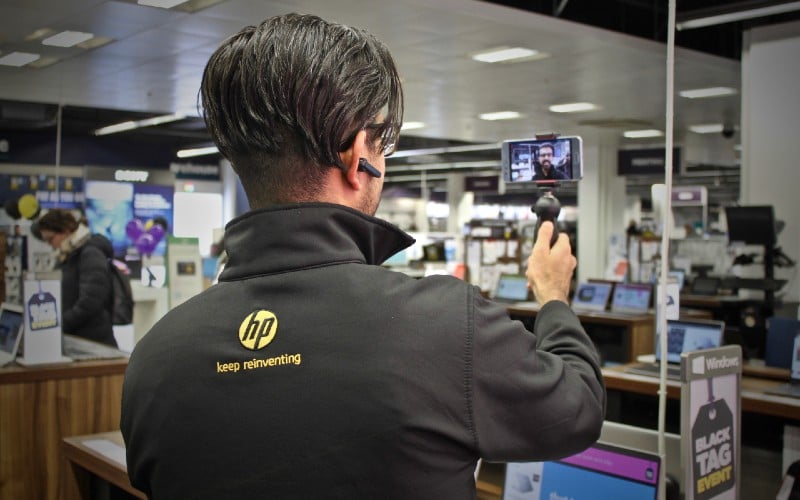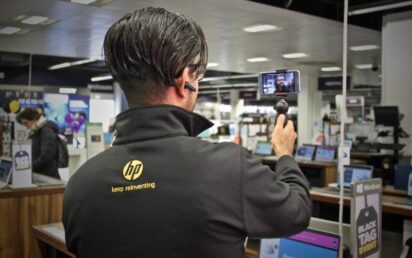The retail sector underwent a seismic shift during COVID-19 as many nations instructed non-essential shops to close their doors to save lives.
The way we live, work and shop has been permanently altered by the pandemic. Several of the high street’s biggest brands fell by the wayside, as Topshop, Debenhams and Dorothy Perkins fell victim to a lack of innovation.
A new report from Go Instore, fourth on our RetailTech 50 ranking – and which worked with the likes of Marks and Spencer in 2021 – highlights the trends experienced by the industry.
The scaleup, founded in 2014 and acquired by Emplifi last year, said ‘The State of Live Commerce’ report is a “stark reminder to the world’s biggest brands that we have entered a new era of retail, where investment in your online customer experience is paramount”.
Throughout 2020, the use of its platform grew rapidly as brands began to recognise the value of live video shopping in the face of store closures.
RetailTech 50 – UK’s most innovative retail technology creators for 2022
The delta variant
As we emerged out of 2020 into 2021, any hopes for the new year marking a COVID retreat began to disappear. New variants led to infection rates soaring during the festive period, later reaching a peak in January. The world adjusted, and lockdowns came into force around the globe.
As expected, the retail industry took one of the biggest hits. Throughout Q1 of 2021, retailers in almost every continent were forced to close their doors.
“Reliance on new forms of commerce was reflected in the trends,” said Go Instore. “Throughout Q1 we had our highest number of unique callers…. dark stores became a necessity and grew in popularity.”
The concept of the dark store is to repurpose a retail store into a fulfilment centre which is not open to the public, allowing staff members to operate with no external contact.
Go Instore said dark stores contributed to a 36% increase in average order value and 8x more spend than through a standard website during the period.
An era of fresh hope
April 2021 showed tentative returns to normality, with the second week marked by the reopening of shops, hairdressers, and gyms.
Shoppers flocked back to the high street, with footfall on the highly anticipated UK retail re-opening of April 12th increasing by a massive 151%.
Despite this, call numbers remained high for Go Instore, which it said demonstrates that even with brick and mortar as an option, some shoppers still preferred a live video call.
In fact, in the week that shops reopened, Go Instore calls were 0.08% higher than the previous week.
“75% of consumers have tried a new shopping behavior, and most intend to continue it beyond the pandemic,” said the company, which also reported that the use of smartphones for online shopping has more than doubled since 2018.
Omicron arrives
Entering the traditional peak shopping period, there was hope for a more normal Christmas following the lifting of lockdown and falling COVID infections.
However, that promise quickly came to a halt as the Omicron burst onto the scene in late November. In the week leading up to Christmas, the UK had amassed over 60,000 cases of Omicron. By Christmas Eve had nearly doubled to 114,000 cases.
The highly transmissible variant sparked the return of the mask mandate, vaccination passports and the urge to work from home. Staff shortages were rife and supply chain issues threatened Christmas dinner ingredients.
Retail sales during the peak season tend to break records year upon year, but with global uncertainty looming, 2021 was predicted to slump. But no one expected a 3.7% fall in retail sales: this was also the first year in history that Black Friday and Cyber Monday sales were down on the previous year.
“Despite this somewhat dismal news, it strengthened the successes of our customers, who emerged with promising results: on Black Friday and Cyber Monday we enabled our clients to serve their customers around the globe with an average conversion rate of 29%,” claimed GoInstore.
“We powered video calls to over 20 countries around the world with an average order uplift of 74%.”


